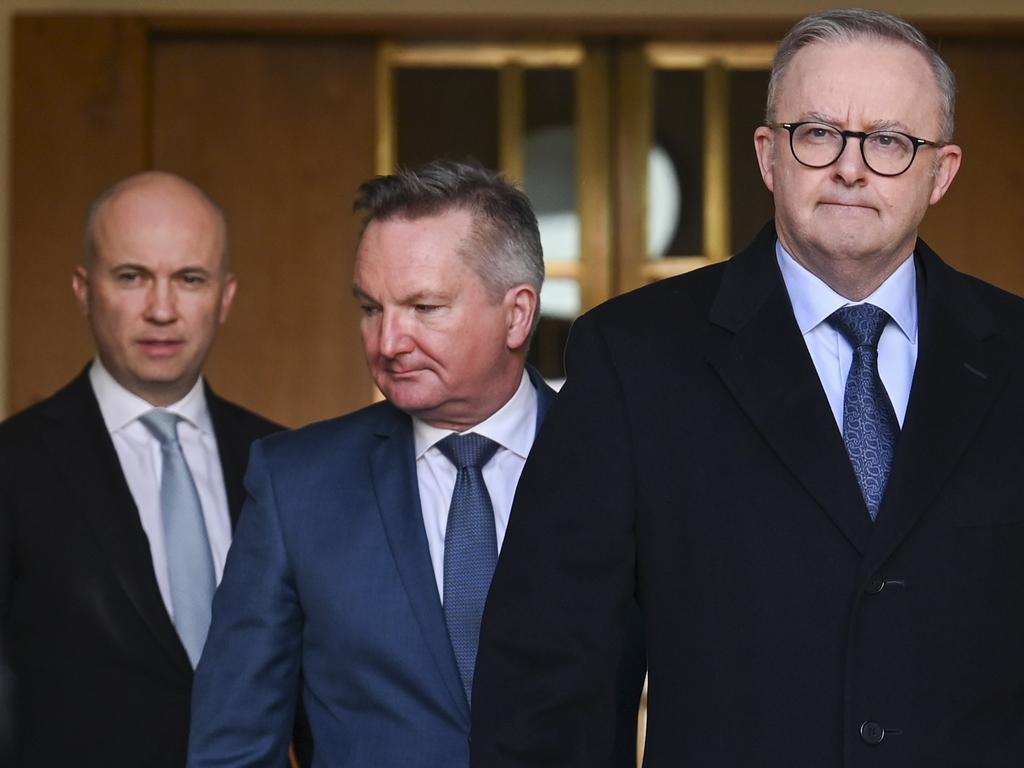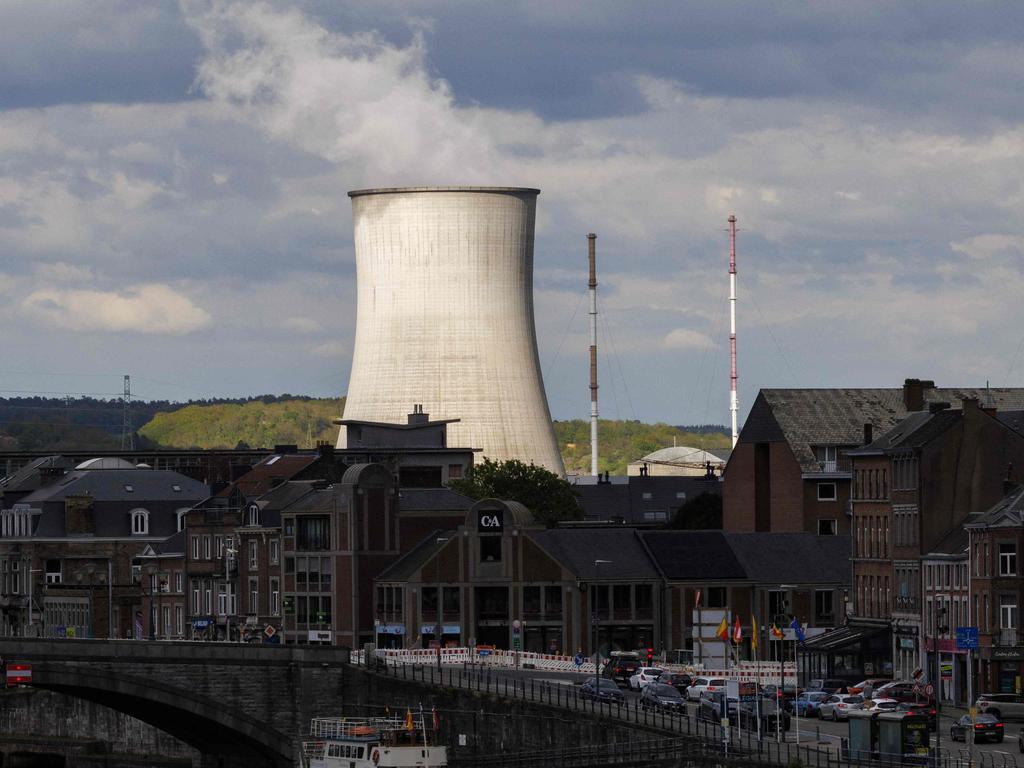Why Coalition must rethink its nuclear pitch


The Coalition is not merely running on the idea of nuclear power. It runs on a specific plan of unprecedented ambition to build seven government-owned nuclear power plants with a rapid initial timetable and the intent of cutting new spending on Labor’s enshrined renewables agenda.
The obstacles are mammoth and multifaceted. The policy and political risks are enormous. Whether the plan is achievable is highly dubious, given the legal, financial and political difficulties. Only a transformation in the way Australia functions will get this new industry into operation on the basis specified.
The Coalition plan – precisely because it is a plan – will ignite an urgent coalition of hostility, bringing together vested financial interests, renewable energy investors and corporates, along with the entire progressive conga line – the Albanese government, most trade unions, the Greens, the ALP premiers, the teals, the progressive media and most of the environmental lobby.
Is this the best route back to office for the Coalition? Is it the best tactical means of putting nuclear on to the policy agenda? The right-wing true believers dismayed by the Morrison government certainly think so. But firing up the base vote doesn’t equate with a credible election strategy.

There is no evidence that turning the next election into a referendum on nuclear power will become a political plus for the Coalition vote. Indeed, with the economy the central election issue the idea seems bizarre. The obvious danger for the Coalition is that its nuclear policy becomes a grand diversion, makes the Coalition the issue and constitutes an electoral life raft for the Albanese government.
The Coalition hopes to feed its nuclear policy into the cost-of-living crisis. But that’s a stretch. How does building seven nuclear power plants in the 2030s and 2040s help households who want price relief now – or next year, or even in 2030? It’s a vision, sure, but so far devoid of any benefit for at least a decade.
Dutton is running as a “big idea” leader anxious to transform his image. He and shadow minister Ted O’Brien prioritise boldness. That’s good. But there are more important tests: Is the proposal saleable and viable? Dutton and O’Brien have been astute in addressing the location bogey – on the sites of retired coal plants with related gains for the local community.
Yet their policy rollout overall has been deeply flawed. They failed to address the cost issue – and this is pivotal since most expert opinion rejects nuclear in Australia on cost grounds; they failed to explain their energy strategy, the contribution of nuclear and the mix between renewables, gas and nuclear; and they failed to address virtually anything in the run-up to 2030.
This policy is based on disruption of the renewables rollout. This is a massive intended consequence. National Party leader David Littleproud has been explicit, saying some major renewable projects won’t be needed. Dutton has also been explicit, saying the aim is to “avoid much of the new spending” slotted for Labor’s renewables rollout. This follows Dutton’s earlier declaration, almost certainly correct, that the 82 per cent renewables target by 2030 is unattainable.
But seeking to exploit Labor’s over-reliance on renewables raises big challenges for the Coalition. It cannot afford a binary policy debate: nuclear versus renewables. This is the debate Labor wants. It is, of course, a phony debate. But, to the extent it occurs, the Coalition loses. It would have no hope – yet some sections of the populist right who loathe renewables are hankering after this sort of suicidal election contest for the Coalition.
The Dutton and O’Brien plan has been to use the nuclear pathway to lock the Coalition into the Morrison stance of net zero at 2050, switch the debate by being willing to accept energy sources on economic merit, and attack Labor for its anti-nuclear obsession and over-reliance on renewables.

Dutton now says net zero at 2050 cannot be achieved without nuclear. But the Coalition’s dilemma lies in the contradiction – it seeks to downgrade the role of renewables while wanting to avoid blame for undermining investment in renewables.
Meanwhile, delivery of the nuclear plan is a herculean task. The Coalition says the first two nuclear plants will operate by 2035 or 2037 – that’s four parliamentary terms from now, 11 and 13 years away. But this borders on the improbable.
It assumes Dutton wins the next election, is able to persuade the Senate to repeal the nuclear ban, wins co-operation from state governments, secures approval to build upon the retired coal-fired sites, requires the Coalition to govern for most of the interim to advance the construction and, even if all the foregoing is improbably achieved, that Australia, from a standing start, will master the expertise to build nuclear power plants at a speed that matches world-best practice.
Who believes all that is deliverable?
This proposal is a reversal of the politics of the voice – this time Dutton is proposing a fundamental change and Albanese will mobilise all his resources to sink it. It reverses the way Albanese, from opposition, won the 2022 election when he offered a non-threatening policy of assurance. But it is a repeat of the way Bill Shorten lost the 2019 election, from opposition, by running a risky, big-spending, tax redistribution agenda that gifted Scott Morrison a scare campaign.
This week’s Newspoll is not encouraging for the Coalition. It shows the public divided over the nuclear option, the split being 45-42 per cent against. Even in the regions the split was 44-43 per cent against. That’s a bad result. Among women voters the rejection was palpable, running at 51-32 per cent against. Among younger voters in the 18-34 age bracket the rejection was 49-39 per cent, hardly inspiring.
Such a big idea needs far stronger support at the outset. Remember, the negative campaign has hardly begun and will be a lethal mix of progressive ideology and financial self-interest. The Resolve Political Monitor published in the Nine papers was a touch more encouraging. It showed support for nuclear power running at 41-37 per cent but, comparing energy sources, the net likability of renewables was at 66 per cent and for nuclear at 8 per cent.
There is no dispute about Labor’s vulnerability on energy policy and power prices. It has misjudged with renewables, over-killed in its hostility towards gas, still has no answer to the power reliability dilemma from the demise of coal, and is irrational in perpetuating legal bans on nuclear.
There was an alternative stance for the Coalition: going to the next election pledging to repeal the nuclear ban, saying all power sources should be assessed on merit, and promising an immediate feasibility study into nuclear on gaining office – thereby making the election issue Labor’s ideological anti-nuclear blindness. That was a winning position – running on the idea of nuclear but denying Labor a big scare off the back of pledging seven nuclear power stations. It meant the Coalition in office would decide the when and how of nuclear power.
At present, the Coalition is on a losing issue. Dutton and O’Brien need to recast this debate as fast and as far as possible. That means a costings assessment on nuclear and an energy strategy that neutralises some of the negatives. It means a focus on 2024 and the run-up to 2030 with a credible agenda of lower prices, presumably with major product discrimination from Labor on the role of gas.
Dutton is aiming high – that risks a bigger fall, unless the foundations are secure.
More Coverage
 Dutton is running as a “big idea” leader anxious to transform his image. He and shadow minister Ted O’Brien prioritise boldness.
Dutton is running as a “big idea” leader anxious to transform his image. He and shadow minister Ted O’Brien prioritise boldness. The policy and political risks are enormous. Whether the plan is achievable is highly dubious, given the legal, financial and political difficulties.
The policy and political risks are enormous. Whether the plan is achievable is highly dubious, given the legal, financial and political difficulties.




The Peter Dutton Coalition has transformed the nation’s energy debate by putting the big idea of nuclear power up in lights – but so far it has failed to show how the Coalition will reduce prices out to 2030, how nuclear power will be cheaper, and how its “balanced” energy mix will be achieved.